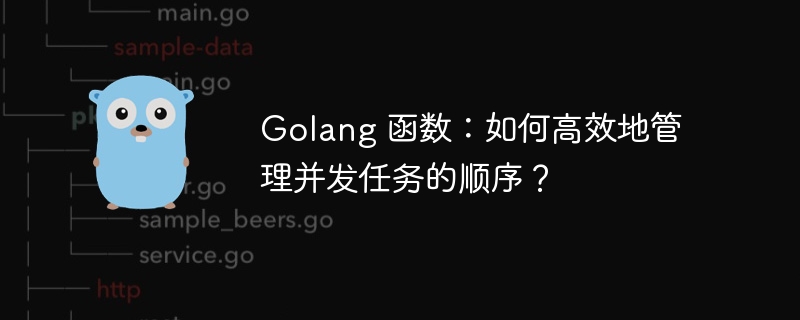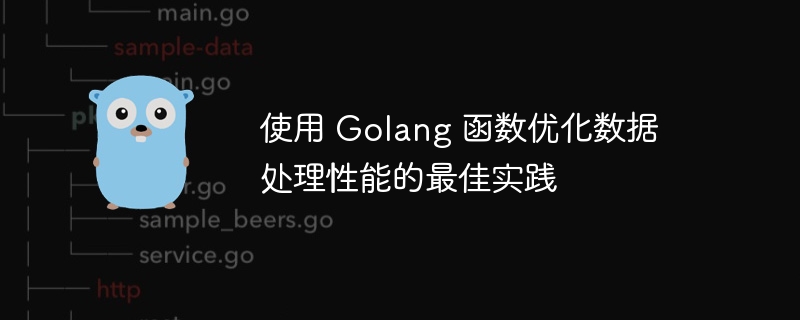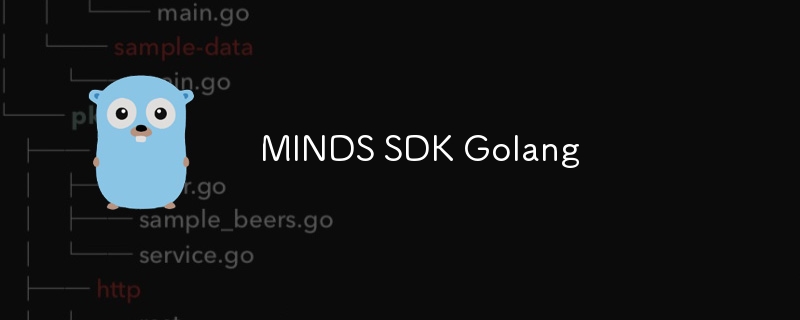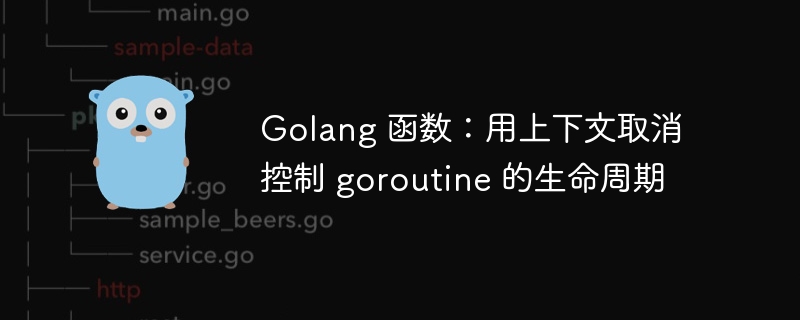在 go 中,可以使用 context 包的 context.context 来取消并发任务,它提供了一种在 goroutine 之间传递取消信号的机制:创建 context.context:使用 context.background() 或 context.withcancel() 创建一个表示取消上下文的 context.context 对象。取消上下文:调用 context.withcancel() 返回的 cancelfunc 来取消上下文。传递上下文:将上下文传递给 goroutine,以便它们可以通过 context.done() 检查取消状态。实战案例:在 http 请求超时时优雅取消请求和关闭连接。

Go 中如何使用上下文取消并发任务
在 Go 中,context 包提供了一个机制,用于在不同的 goroutine 之间传递取消信号。这对于在超时或应用程序关闭时优雅地取消并发任务非常有用。
使用 context.Context
立即学习“go语言免费学习笔记(深入)”;
首先,创建一个代表取消上下文的 context.Context。这是通过调用 context.Background() 或 context.WithCancel() 完成的:
ctx := context.Background()
要取消上下文,请调用 CancelFunc,它由 context.WithCancel() 返回:
cancelFunc := context.WithCancel(ctx).CancelFunc
传递上下文
将上下文传递给 goroutine,以便它们可以检查取消状态:
go func() {
for {
select {
case <-ctx.Done():
// 上下文已取消,退出 goroutine
return
default:
// 执行任务
}
}
}()实战案例
考虑一个获取 HTTP 请求响应的 goroutine。如果请求在指定的时间量内没有完成,我们希望取消请求并关闭连接:
import (
"context"
"net/http"
)
func main() {
// 创建带有 5 秒超时的上下文
ctx, cancel := context.WithTimeout(context.Background(), 5*time.Second)
defer cancel()
// 创建一个 HTTP 请求
req, err := http.NewRequest(http.MethodGet, "https://example.com", nil)
if err != nil {
log.Fatal(err)
}
// 添加 ctx 到请求
req = req.WithContext(ctx)
// 执行请求
resp, err := http.DefaultClient.Do(req)
if err != nil {
if err == context.Canceled {
// 请求被取消
log.Println("请求已取消")
} else {
log.Fatal(err)
}
}
defer resp.Body.Close()
}以上就是Golang 函数如何使用上下文来取消并发任务?的详细内容,更多请关注php中文网其它相关文章!






